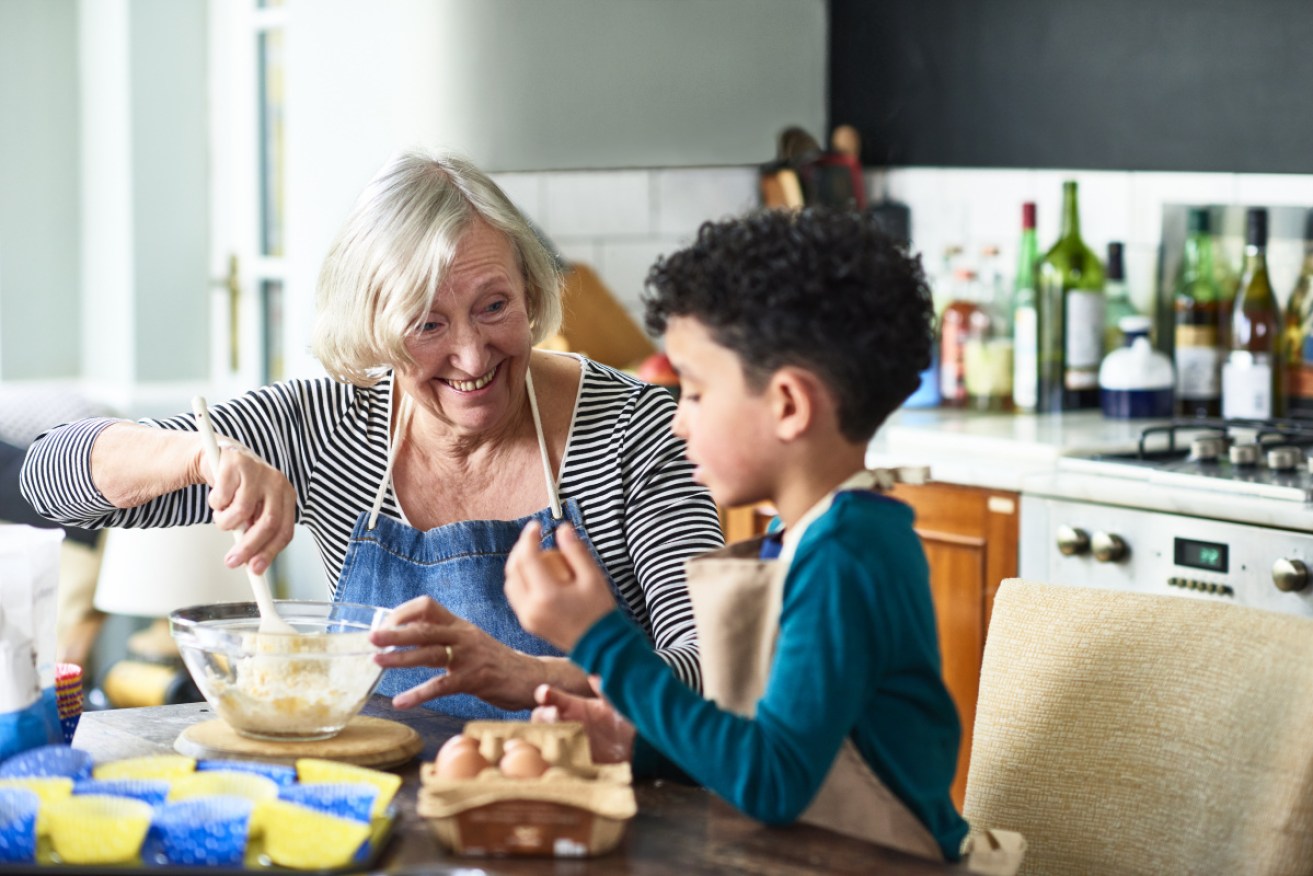Grandmothers feel their grandkids’ emotions when looking at photos


Scientists scanned grandmothers’ brains to see how they felt about their grandkids. Photo: Getty
It’s a common complaint that our mothers are more understanding and forgiving of their grandchildren.
In other words, our cute little ones get all the empathy while we get the colder eye of critical appraisal.
Are we just being paranoid and maybe a little jealous?
A fascinating new study says no, it’s a real thing.
For the first time, scientists have scanned grandmothers’ brains while they’re viewing photos of their young grandchildren – providing evidence that little children, as a matter of course, have “evolved traits” to manipulate the grand maternal brain.
The short version
When the young children in the photographs were displaying joy, their grandmother immediately mirrored that joy.
If the children were pictured upset, the grandmother became upset.
In other words, what the child was feeling, the grandmother was feeling too.
This wasn’t simply a matter of seeing the grandmother participants smiling or looking concerned – the respective areas of the brain where these emotions reside lit up.
“What really jumps out in the data is the activation in areas of the brain associated with emotional empathy,” says Dr James Rilling, lead author and professor in Emory University’s Department of Anthropology and Department of Psychiatry and Behavioural Sciences.
“That suggests that grandmothers are geared toward feeling what their grandchildren are feeling when they interact with them.”
In contrast, the study found that when grandmothers view images of their adult child, “they show stronger activation in an area of the brain associated with cognitive empathy”.
What does that mean?
Dr Rilling said that this indicates our mothers may be trying to cognitively understand what their adult child is thinking or feeling and why, but not as much from the emotional side.
They’re not feeling what we’re feeling. Instead, they’re trying to work out what’s really going on.
“Young children have likely evolved traits to be able to manipulate not just the maternal brain, but the grand maternal brain,” Dr Rilling said.
“An adult child doesn’t have the same cute ‘factor,’ so they may not illicit the same emotional response.”
How big was the study?
It was a small but persuasive study, well supported by scanning technology.
Fifty participants completed questionnaires about their experiences as grandmothers, providing details such as how much time they spend with their grandchildren, the activities they do together and how much affection they feel for them.
Then they underwent functional magnetic resonance imaging (fMRI) to measure their brain function as they viewed pictures of their grandchild, an unknown child, the same-sex parent of the grandchild, and an unknown adult.
The results showed that, while viewing pictures of their grandchildren, most participants showed more activity in brain areas involved with emotional empathy and movement, compared to when they were viewing the other images.
The grandkids were what they cared about most.
What purpose do these responses serve?
Humans evolved to be social animals, and to be co-operative breeders.
This means that mothers benefit from help in caring for their offspring – although it may not be available to them.
From an evolutionary point of view, these benefits are to do with the mother being freed up to produce another child sooner rather than later.
“We often assume that fathers are the most important caregivers next to mothers, but that’s not always true,” Dr Rilling said. “In some cases, grandmothers are the primary helper.”
There’s a theory called the ‘grandmother hypothesis’ that suggests the reason human females tend to live long past their reproductive years – and are able to serve as helpers – is because “they provide evolutionary benefits to their offspring and grandchildren”.
Dr Rilling said that in modern societies, “evidence is accumulating that positively engaged grandmothers are associated with children having better outcomes on a range of measures, including academic, social, behaviour and physical health”.








